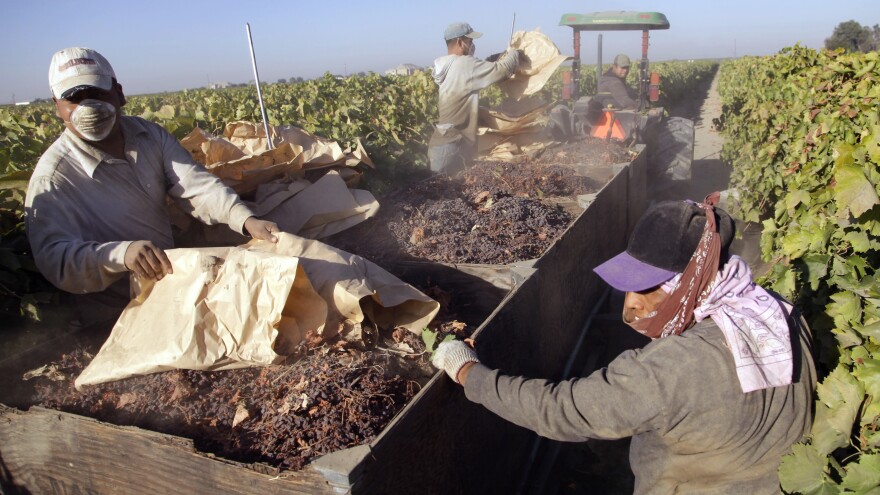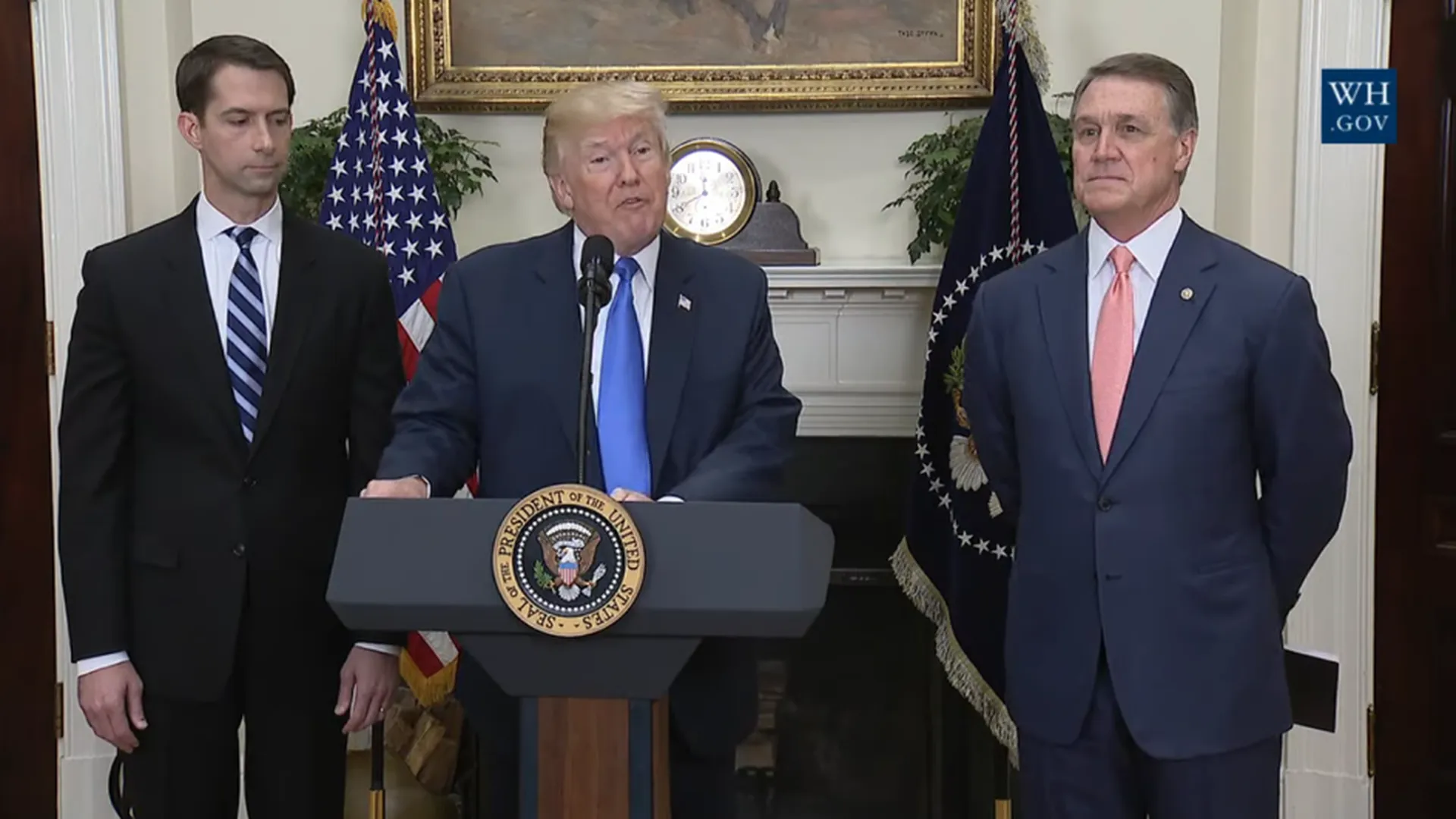In an unexpected twist, President Donald Trump is throwing a lifeline to undocumented migrant workers in agriculture, igniting outrage among his far-right base. During a rally in Des Moines, Iowa, on July 3, 2025, Trump signaled a significant shift in his immigration policy, proposing to allow certain undocumented workers to remain in the U.S. to support the farming and hospitality sectors. This move comes in the face of mounting economic pressures and reveals a fragile balance between political promises and practical necessities.
Economic Realities Clash with Rhetoric
Trump"s remarks reflect an acute awareness of the economic realities facing Iowa"s agricultural industry, which is heavily dependent on migrant labor. According to a report by the New York Times, about 40% of U.S. farm workers are undocumented. These workers have become integral to the operations of farms that produce essential crops like corn and soybeans.
During his speech, Trump acknowledged the long-standing contributions of these workers, stating, "We can’t do it" when referring to the deportations of those who have been employed for years. This candid admission is not just a shift in tone; it suggests an urgent need to address labor shortages that could cripple agricultural output.
Backlash from the Far Right
However, this apparent pivot has not gone unnoticed by Trump"s base. Far-right figures like Jack Posobiec and Mike Cernovich have vehemently criticized the proposal, framing it as a betrayal of Trump’s hardline stance on immigration. Posobiec invoked the tragic murder of Mollie Tibbetts, using it to stoke fear and anger within the MAGA community. His tweet aimed to galvanize anti-immigrant sentiment, reminding supporters of the supposed dangers posed by undocumented workers.
Cernovich"s comments that the plan prioritizes foreign interests over American workers reveal a deep-seated anxiety among Trump’s supporters. This backlash underscores the challenges Trump faces as he navigates the delicate intersection of economic necessity and his base"s unwavering demand for strict immigration enforcement.
\n\n
A human-trafficking case exposed farmworker abuses. The ...
Implications for Civil Rights and Social Justice
This shift raises pressing questions about the future of immigration policy and its impact on civil rights. By suggesting a system where farmers can vouch for migrant workers, Trump is essentially creating a dual standard in immigration enforcement. As reported by the Des Moines Register, the proposal tasks farmers with identifying which workers are "good" and which are "criminals," a move fraught with potential for discrimination and abuse.
The implications of this policy could be profound. Vulnerable workers, already at risk of exploitation, may find themselves further marginalized as farmers decide who deserves protection based on arbitrary criteria. This approach not only undermines the dignity of labor but also threatens the civil rights of those it is meant to protect.
Political Fallout as 2026 Midterms Approach
As the 2026 midterms loom, Trump’s immigration strategy appears increasingly precarious. Democrats are seizing on this inconsistency to highlight the contradictions within Trump’s administration. According to a Democratic strategist, "He’s trying to have it both ways—tough on immigrants to please his base, but soft when it suits his business allies." This sentiment reflects a growing frustration among voters who feel caught in the crossfire of political gamesmanship.
Furthermore, the backlash from Trump"s base could lead to a fracture within the MAGA movement. A faction that once firmly supported strict immigration policies may see this shift as a betrayal. As noted in the Associated Press, this internal conflict may create rifts that could be detrimental to Trump’s re-election prospects.
\n\n
Behind the White House immigration plan
The Future of Immigration Policy
As the administration grapples with the complexities of labor needs and political promises, the question remains: What will be the long-term consequences of this shift? The plan to allow some migrants to stay, although framed as a pragmatic solution, risks alienating core supporters while simultaneously failing to provide a concrete path to citizenship or legal status for these essential workers.
Trump"s comments signal a recognition of the critical role that undocumented workers play in the economy, but the lack of a clear, humane immigration reform plan raises alarm bells for advocates of civil rights and social justice. Without a comprehensive approach that acknowledges the humanity of migrant workers, this policy could exacerbate existing inequalities while leaving vulnerable populations in a state of uncertainty.

![[Video] Federal officers deploy sting balls and flash grenades at Whipple Building](/_next/image?url=%2Fapi%2Fimage%2Fthumbnails%2Fthumbnail-1768340555229-vhfcc-thumbnail.jpg&w=3840&q=75)
![[Video] Crowd-control weapons used in Minneapolis as anti-ICE protesters attack police vehicle](/_next/image?url=%2Fapi%2Fimage%2Fthumbnails%2Fthumbnail-1768336302231-akxf7s-thumbnail.jpg&w=3840&q=75)

![[Video] Protests erupt in Minneapolis after ICE detains teenager, multiple arrests made](/_next/image?url=%2Fapi%2Fimage%2Fthumbnails%2Fthumbnail-1768331835371-z9ylqg-thumbnail.jpg&w=3840&q=75)


![[Video] Gunfire between Iraqi security forces and Sadr militias in Baghdad](/_next/image?url=%2Fapi%2Fimage%2Fthumbnails%2Fthumbnail-1768343508874-4redb-thumbnail.jpg&w=3840&q=75)
